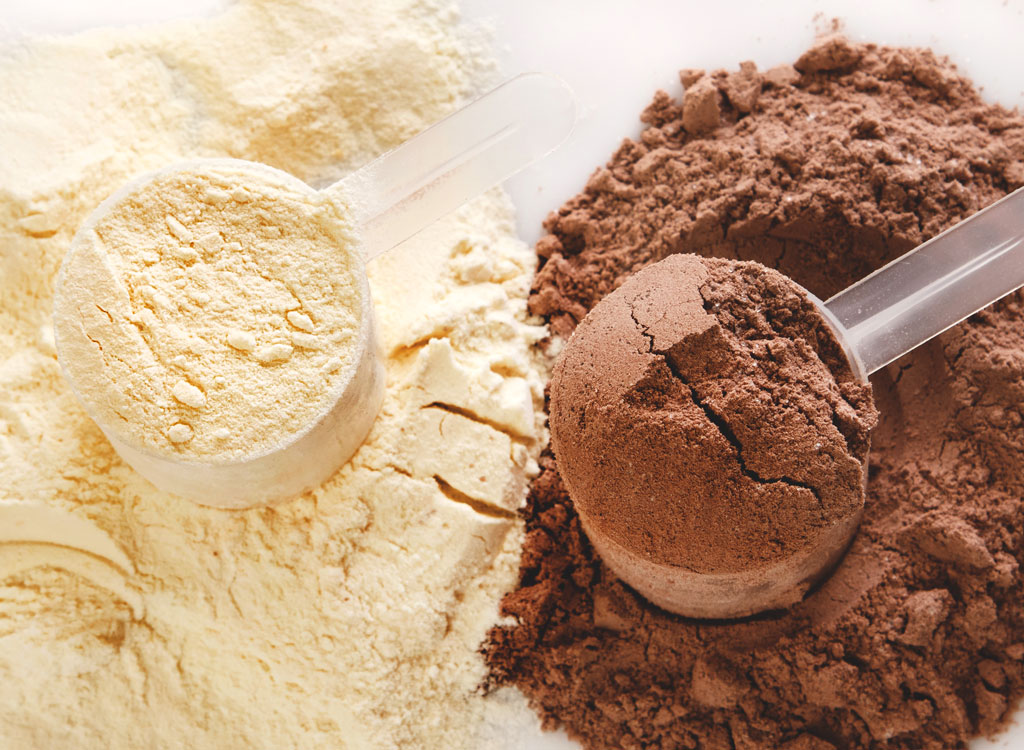The Scary Hidden Ingredient In Protein Powder You Need to Know About

Protein powder certainly has a positive reputation. Between the benefits of getting more protein in your diet to how protein affects your muscles after a workout, the use of protein powder in smoothies and even baked goods has increased significantly. Yet if you’re not careful with the protein powders you are purchasing, you could be consuming unsafe ingredients.
According to a study done by the Clean Label Project, out of the 134 of the top-selling protein powder products tested, many of those protein powders tested for having high levels of toxins, including heavy metals. They detected 70% of protein powders had lead in it, 74% detected levels of cadmium, and 55% detected levels of BPA (which is used to make plastic). Arsenic was also detected in these protein powders.
Before assuming the type of protein powder that has detected amounts of lead, take a further look at their research. The Clean Label Project actually found plant-based protein powders to be worse in terms of detected levels of heavy metals (75% of them tested positive), as well as the protein powder that is considered organic. Certified “organic” protein powder products had an average of two times more heavy metals compared to the non-organic products tested.
While children are at a much greater risk to experience serious health hazards from toxins such as lead and cadmium, that doesn’t stop it from being hazardous to anyone’s health. One study shows that lead in the bloodstream can actually cause neurological disorders such as “brain damage, mental retardation, behavioral problem, nerve damage, and possibly Alzheimer’s disease, Parkinson’s disease, and schizophrenia.” Lead exposure can also create genotoxic effects in the brain, bone marrow, liver, and lungs. Cadmium also severely affects human health, and likely the more alarming toxin. One study shows how it disrupts the digestive system, respiratory system, and creates organ damage.
“These contaminants are bad for the body because they can build up over time and accumulate for years,” says Jordan Mazur, MS and RD for the San Francisco 49ers and Performance Engineer for Momentous. “There is some evidence to suggest that build-up of these contaminants can have adverse effects over time. These substances are very dangerous and at high levels can be linked to cancer, brain damage, and reproductive issues.”
Where the toxins are coming from
How does a protein powder get such high levels of toxins? According to Harvard Health, it has to do with the toxins in the soil.
Plant-based protein usually comes from soy and hemp, while whey proteins come from milk or egg. Because the plant-based protein is relying on the soil when grown, according to Consumer Reports, these plants are prone to absorbing heavy metals from the soil.
Even if a certified organic product claims to be organic, organic fertilizers have been tested for having heavy metals in them. Animal manure is a popular organic fertilizer as is sewage sludges (biosolids), which according to a study by Colorado State University may contain heavy-metal contaminants due to repeated fertilizer applications.
How to know which protein powders to buy
Even though the Clean Label Project has listed a few of the best and worst protein powders to buy, not all protein powders on the current market have gone through the screening process. So is one supposed to know if their protein powder is safe?
The best thing to do is to take a look at the product’s website and look for any transparent information they have about what is actually in their product. For example, IQ Bars has an extensive page about their products and dives into every ingredient so you can be aware of what’s in your bars.
“In the end, it’s very difficult to find products that are completely free of these substances,” says Mazur. “When comparing products, you should just look to see which ones stack up against each other and have the lowest level of contaminants based on third party research like Clean Label Project. Interestingly, organic did not have lower levels of contaminants than non-organic, according to their research.”
Mazur says the quality of the protein powder really matters, and if you are looking for one that you can trust, to step aside from comparing prices for the moment. “Oftentimes you pay for what you get, the more expensive the product is, the high quality it usually is as well.”
For more healthy eating tips, be sure to sign up for our newsletter.